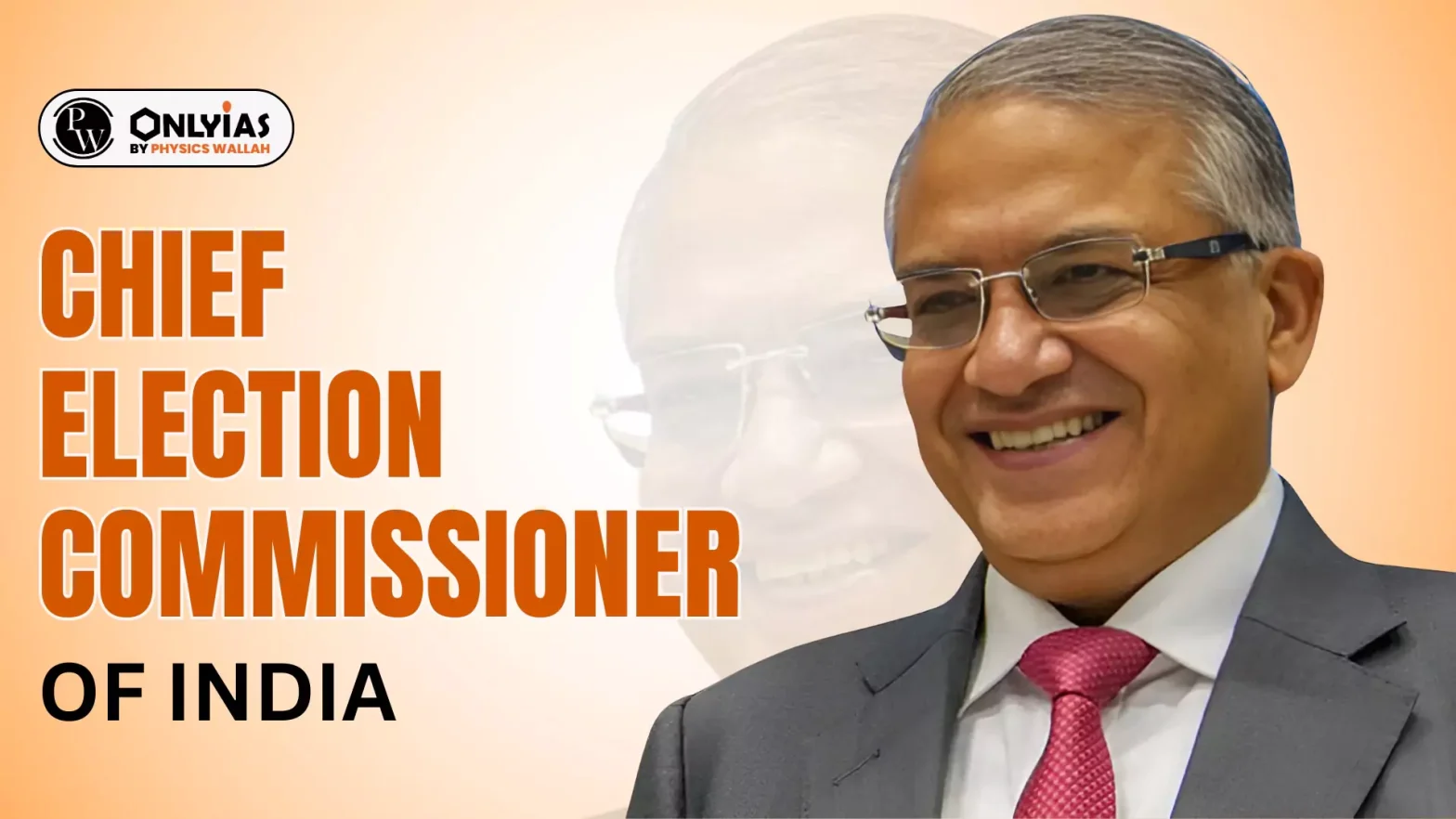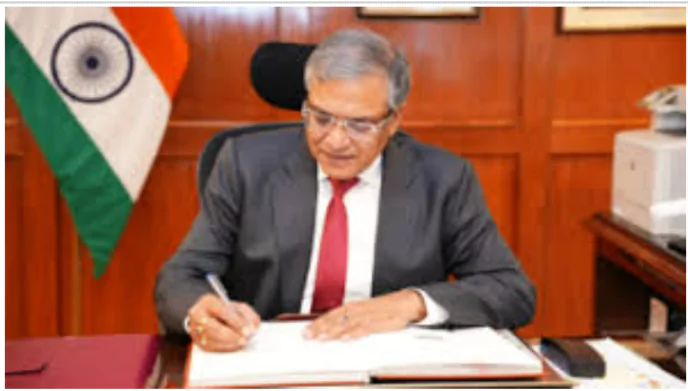Chief Election Commissioner of India has been changed. Gyanesh Kumar has been appointed as the new Chief Election Commissioner of India succeeding Rajiv Kumar.

Chief Election Commissioner of India plays a crucial role in overseeing the electoral process in the country. As the head of the Election Commission of India (ECI), the CEC is responsible for conducting free and fair elections for the Lok Sabha, Rajya Sabha, State Legislative Assemblies, and the offices of the President and Vice President. The CEC is an independent constitutional authority, ensuring that elections are conducted in an impartial manner, free from political influence.
As of February 19, 2025, Gyanesh Kumar serves as the 26th Chief Election Commissioner of India. Prior to his appointment as CEC, Kumar served as an Election Commissioner from March 15, 2024, succeeding Rajiv Kumar upon his retirement.
Gyanesh Kumar has been appointed as the new Chief Election Commissioner of India. He assumed office in February 2025, succeeding Rajiv Kumar, who completed his tenure.
| Particulars | Details |
| Current Chief Election Commissioner | Gyanesh Kumar |
| Date of Appointment | February 2025 |
| Predecessor | Rajiv Kumar |
| Tenure | 6 years or until the age of 65 (whichever is earlier) |
| Appointing Authority | President of India |
| Removal Process | Same as a Supreme Court judge (through impeachment) |
| First Chief Election Commissioner of India | Sukumar Sen (1950-1958) |
| Constitutional Article | Article 324 of the Indian Constitution |

Gyanesh Kumar is a seasoned Indian Administrative Service (IAS) officer from the 1988 Kerala cadre, known for his extensive experience in governance and administration. He retired as the Secretary of the Ministry of Cooperation in January last year.
He has held significant positions throughout his career, including serving as the Secretary in the Ministry of Home Affairs (MHA) under Amit Shah from May 2022. Prior to that, he spent five years in the MHA, first as a Joint Secretary (2016-2018) and then as an Additional Secretary (2018-2021).
Notably, Gyanesh Kumar played a key role in the abrogation of Article 370 in August 2019, overseeing the Jammu & Kashmir desk as Additional Secretary. He was frequently seen accompanying Amit Shah to Parliament when the bill to revoke Article 370 was introduced.
In March last year, he was appointed as an Election Commissioner, alongside Sukhbir Singh Sandhu.
Academically, Gyanesh Kumar holds a B.Tech in Civil Engineering from the Indian Institute of Technology (IIT) Kanpur and has furthered his education in Business Finance at the Institute of Chartered Financial Analysts of India (ICFAI).
The Chief Election Commissioner is appointed by the President of India based on the recommendation of a three-member committee comprising:
The appointment is made under Article 324 of the Indian Constitution, which grants the Election Commission of India (ECI) its powers and responsibilities.
The Chief Election Commissioner holds office for a term of six years or until they reach the age of 65, whichever is earlier.
The Chief Election Commissioner has wide-ranging responsibilities to ensure a transparent and impartial electoral process. Here are some Key Responsibilities of CEC:
The Chief Election Commissioner enjoys security of tenure and can only be removed through impeachment, similar to a Supreme Court judge.
The Chief Election Commissioner plays a critical role in maintaining the integrity of elections in India. However, there are several challenges faced by the CEC:
The CEC plays a key role in ensuring democratic processes remain fair and transparent despite these challenges.
Gyanesh Kumar is the current Chief Election Commissioner of India, appointed in February 2025.
The President of India appoints the Chief Election Commissioner based on the recommendation of a three-member committee consisting of the Prime Minister, the Leader of the Opposition, and a Union Cabinet Minister.
The CEC holds office for 6 years or until they reach the age of 65, whichever is earlier.
The CEC can be removed only through an impeachment process, requiring a two-thirds majority vote in both Houses of Parliament.
The CEC oversees the election process in India, ensuring free and fair elections, monitoring political parties and campaign expenditures, and implementing electoral reforms.
<div class="new-fform">
</div>